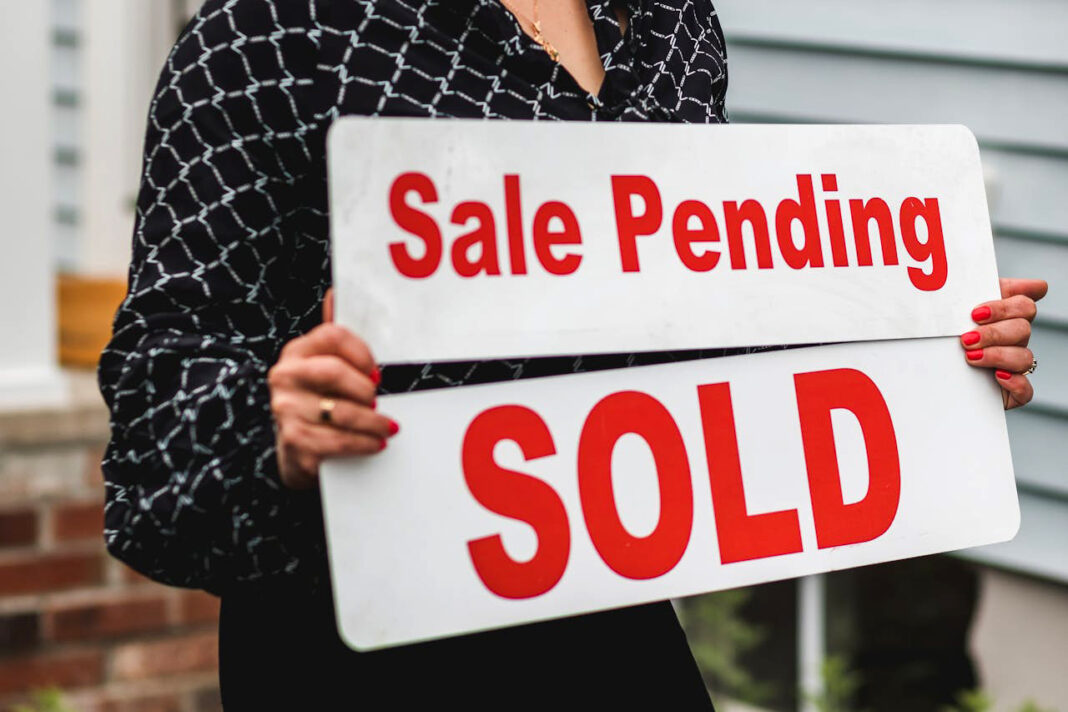Before diving into the world of selling a foreclosed home directly to cash buyers, it’s crucial to grasp the basics of foreclosure itself. Foreclosure is a legal process that occurs when a borrower fails to make mortgage payments, leading the lender to reclaim the property. This process can be complex and often daunting, but understanding its key components can empower you to take control of your situation.
Typically, foreclosure begins after a homeowner has missed several payments, prompting the lender to issue a notice of default. This notice serves as a formal warning, signaling that the borrower is at risk of losing their home. If the payments remain unpaid, the lender moves forward with the foreclosure process, which can culminate in the property being sold at auction. However, it’s important to note that foreclosure laws and timelines can vary significantly from state to state, adding layers of complexity to the situation.
Navigating through a foreclosure can be overwhelming, but recognizing that you have options is essential. Many homeowners mistakenly believe that their only choice is to let the bank take over the property, but selling your home directly to cash buyers can often yield a more favorable outcome. By understanding the foreclosure process and its implications, you can make informed decisions that align with your financial goals and ultimately lead to a smoother transition from homeownership. With knowledge as your foundation, you can take proactive steps towards regaining control of your financial future, turning a challenging situation into an opportunity for a fresh start.
Why Selling to Cash Buyers Can Be Beneficial
When facing the challenging decision of selling a foreclosed home, understanding the benefits of selling directly to cash buyers can empower you to achieve a more favorable outcome. Cash buyers, often investors or individuals with the means to purchase properties outright, present a unique opportunity that can alleviate much of the stress associated with traditional home sales.
One of the most significant advantages is the speed of the transaction. Cash buyers can bypass the lengthy approval processes that accompany mortgage financing, allowing for a quick closing—sometimes in as little as a week. This rapid turnaround can be especially crucial for homeowners looking to alleviate financial burdens or move on from a difficult situation. If you are trying to sell your house in North Carolina, you can easily find companies offering fast cash offers for homes in Raleigh, NC that specialize in quick and stress-free transactions. This option can help NC homeowners avoid foreclosure delays while moving forward with their financial plans.
Moreover, selling to cash buyers often means fewer contingencies and a more straightforward negotiation process. Traditional buyers often require home inspections, appraisals, and other conditions that can complicate and prolong a sale. In contrast, cash buyers typically purchase properties as-is, minimizing the need for costly repairs or renovations. This can save you time and money, allowing you to sell your home without the added pressure of preparing it for the market.
Additionally, cash sales can provide a more secure and reliable transaction. In a world where mortgage financing can fall through at the last minute, cash offers eliminate this risk. You can rest easy knowing that once you accept an offer, the buyer has the funds readily available to complete the purchase.
Finally, selling directly to cash buyers can often lead to a better financial outcome. Without the fees associated with real estate agents and prolonged marketing efforts, more of the sale price can go directly into your pocket. This direct approach empowers you to take control of your financial future, allowing you to move forward without the shackles of foreclosure hanging over you.
In essence, selling your foreclosed home to cash buyers can streamline the process, reduce stress, and ultimately lead to a more advantageous outcome, giving you the fresh start you need.
Assessing Your Home’s Value Before Selling
Before diving into the selling process, it’s crucial to have a clear understanding of your home’s value. This step not only empowers you with knowledge but also sets the stage for making informed decisions that can significantly impact your outcome. Start by conducting a thorough assessment of your property, taking into consideration its current state, location, and the dynamics of the local real estate market.
Begin with a comparative market analysis (CMA) to gauge similar properties in your neighborhood. Look at recent sales data and listings to see how homes with similar features, sizes, and conditions have performed. Online tools and real estate websites can provide estimates, but remember, these are just starting points. Nothing beats the insight of a local real estate agent who knows the nuances of your area.
Next, evaluate the condition of your home. Are there repairs that need to be addressed? Upgrading key areas such as kitchens or bathrooms can enhance your property’s appeal and value. Alternatively, if your home is in disrepair, be honest about its condition and factor that into your price.
Don’t forget to consider external factors such as market trends and economic conditions. Is it a buyer’s market or a seller’s market? This can heavily influence how you position your home. Understanding these dynamics can help you set a competitive price that attracts cash buyers while ensuring you get a fair return.
Finally, consider having a professional appraisal. An appraiser will provide an unbiased estimate of your home’s value, taking all relevant factors into account. While this may involve a modest fee, it can be a worthy investment to avoid overpricing or underpricing your home.
By thoroughly assessing your home’s value, you can approach the selling process with confidence, making it easier to negotiate with cash buyers and ultimately resulting in a transaction that meets your needs.
The Advantages of a Direct Sale vs. Traditional Methods
When it comes to selling a foreclosed home, understanding the advantages of a direct sale to cash buyers can be a game-changer. Traditional methods, such as listing with a real estate agent, can often be lengthy, stressful, and laden with uncertainties. In contrast, opting for a direct sale offers a streamlined, efficient process that can significantly alleviate the burdens associated with foreclosure.
One of the most compelling benefits of a direct sale is the speed at which the transaction can occur. Cash buyers are often ready to close deals swiftly, sometimes within just a week or two, allowing you to move on from the stress of foreclosure much faster than if you were to rely on traditional sales methods. This quick turnaround can be particularly beneficial if you’re facing financial strain and need to settle your debts promptly.
Additionally, selling directly eliminates many of the costs associated with a traditional sale. You won’t have to worry about agent commissions, which can eat into your profits, or the expenses related to staging the home for showings and open houses. Moreover, cash buyers often purchase homes as-is, meaning you won’t need to invest time or money into repairs or renovations. This can save you not only financial resources but also the emotional toll of preparing your home for the market.
Another advantage is the level of certainty a direct sale provides. With traditional sales, there’s always the risk of deals falling through due to financing issues or buyer contingencies. However, cash buyers come with the assurance of being able to pay outright, significantly reducing the risk of last-minute surprises. This means you can approach the process with greater confidence, knowing that your home will be sold quickly and reliably.
In summary, choosing to sell your foreclosed home directly to cash buyers can offer a plethora of advantages that traditional methods simply cannot match. From a faster closing process to reduced costs and increased certainty, a direct sale is a strategic decision that can lead to a more favorable outcome in an otherwise challenging situation.
How to Find Reputable Cash Buyers
Finding reputable cash buyers like Sell My House Fast Baltimore companies for your foreclosed home can feel daunting, but with the right approach, you can connect with trustworthy investors who are genuinely interested in making a fair purchase. Here are some effective strategies to help you navigate this process and ensure you’re dealing with credible buyers.
Leverage Online Platforms: Start by exploring online real estate marketplaces dedicated to cash sales. Websites such as Zillow, Craigslist, and Redfin can connect you with local investors. Be sure to look for cash buyer-specific listings and forums where you can post about your home.
Network with Real Estate Professionals: Real estate agents, brokers, and investors often have established connections with cash buyers. Reach out to local agents who specialize in foreclosures or investment properties; they can guide you to reputable buyers who are actively looking for homes in your area.
Attend Real Estate Investment Groups: Joining local real estate investment groups or forums can provide valuable insights and direct connections to cash buyers. These groups often hold meetings where you can network with investors looking for opportunities. Engaging in discussions can help you gauge their credibility and intentions.
Seek Referrals: Don’t underestimate the power of word-of-mouth. Ask friends, family, or colleagues if they know any cash buyers or investors who have purchased properties recently. Personal referrals can often lead you to trustworthy individuals who have a proven track record.
Check Reviews and References: Once you have a list of potential buyers, do your due diligence. Research their reputation by checking online reviews and asking for references. A reputable cash buyer should be transparent about their past transactions and willing to provide testimonials from previous sellers.
Verify Financial Capability: Before proceeding with negotiations, ensure the buyer has the necessary funds to complete the purchase. Request proof of funds to confirm they can make a cash offer. This step can save you from potential disputes later in the process.
By employing these strategies, you can find reputable cash buyers who are serious about purchasing your foreclosed home. With the right buyer, you can streamline the selling process and achieve a better outcome, allowing you to move forward with confidence and peace of mind.
Preparing Your Home for a Quick Sale
When it comes to selling your foreclosed home swiftly and efficiently, preparation is key. A well-prepared home not only attracts potential cash buyers but also increases your chances of securing a better sale price. Here are some essential steps to ensure your property stands out in a competitive market.
First and foremost, consider a thorough cleaning. A clean home creates a welcoming atmosphere and allows buyers to envision themselves living there. Take the time to declutter, removing personal items and excess furniture that may make the space feel cramped. A minimalist approach not only enhances the aesthetic appeal but also highlights the home’s best features.
Next, focus on minor repairs and maintenance tasks. Address any visible issues, such as leaky faucets, chipped paint, or squeaky doors. These small fixes can significantly impact a buyer’s perception and instill confidence in the property’s condition. Additionally, don’t underestimate the power of a fresh coat of paint; neutral colors can create a blank canvas that allows potential buyers to imagine their own style within the space.
Enhancing your home’s curb appeal is another crucial aspect of preparation. First impressions matter, so take a few steps to elevate the exterior. Trim overgrown shrubs, mow the lawn, and consider adding colorful flowers or potted plants to your entryway. A well-maintained yard and inviting entrance can make all the difference, inviting buyers to explore the interior further.
Finally, consider staging your home, even if it’s just a few key rooms. Strategically placing furniture and decor can help illustrate the home’s potential and functionality. If you’re unsure where to start, you might seek the assistance of a professional stager or simply utilize your existing furniture to create an inviting, lived-in feel.
By taking the time to prepare your foreclosed home for a quick sale, you not only enhance its appeal but also increase your chances of attracting cash buyers who are ready to make a deal. A little effort can go a long way in securing a favorable outcome during this critical time
The Selling Process: What to Expect
When you decide to sell your foreclosed home directly to cash buyers, understanding the selling process is crucial for a smooth and successful transaction. Unlike traditional sales, where multiple parties—agents, banks, and buyers—can complicate the journey, selling to cash buyers often streamlines the experience, allowing you to take control of the process.
First, you’ll begin by assessing your property’s condition and determining a competitive asking price. Cash buyers are typically looking for good deals, so pricing your home right is essential. Once you’ve set a price, marketing your property effectively is the next step. This can be done through online listings, social media, or local real estate groups, emphasizing the fact that you are selling directly for cash, which can be a significant draw for buyers seeking quick transactions.
Once you start receiving inquiries, expect to engage in negotiations. Cash buyers often want to inspect the property, so be prepared to show your home and highlight any valuable features. Keep in mind that cash buyers tend to move quickly, so having all necessary documentation—like title deeds and disclosure statements—ready will facilitate a smoother negotiation process.
After reaching an agreement, the next phase involves the closing process. This is where things might differ slightly from a traditional sale. With cash sales, the closing can happen relatively quickly, often within a week or two, as there are no lengthy bank approval processes involved. You will need to work with a title company or real estate attorney to ensure all legalities are handled properly, create a clear title, and ensure that all paperwork is in order.
Finally, once all documents are signed and funds are transferred, you will receive your payment in cash, often making the experience far less stressful than dealing with a foreclosure through traditional means. By selling directly to cash buyers, you not only expedite your sale but also gain peace of mind, allowing you to move forward with your life without the burdens of foreclosure hanging over you.
Reviewing Offers: Key Considerations
When it comes to selling your foreclosed home, reviewing offers can often feel like navigating a complex maze. However, taking the time to carefully examine each proposal is crucial for ensuring you achieve the best possible outcome. Here are some key considerations to keep in mind as you sift through potential offers.
First and foremost, assess the offer price in relation to your home’s current market value. While cash buyers may present lower offers due to the nature of a foreclosure, it’s essential to compare these offers against recent sales of similar properties in your area. This will give you a clearer picture of whether the proposed price is fair or if it falls short of your expectations.
Next, look beyond the numbers and evaluate the terms of each offer. A seemingly attractive price might be accompanied by unfavorable conditions, such as extended closing timelines or excessive contingencies. On the other hand, an offer that appears lower at first glance could include favorable terms, such as a quick closing date or fewer contingencies, which might ultimately save you time and stress.
Additionally, consider the buyer’s financial position. Cash buyers typically present a stronger offer since they can expedite the sale process without the complications that come with financing. Request proof of funds to ensure that the buyer has the necessary resources to make the purchase. This verification can save you from potential headaches down the line, such as delays or cancellations.
Finally, trust your instincts and consider the overall vibe of the buyer. Open communication and a willingness to negotiate can be indicative of a smoother transaction process. A buyer who is transparent and responsive may be more likely to follow through on their commitment, reducing the risk of complications.
In summary, reviewing offers requires a balanced approach that weighs price against terms, the buyer’s financial capability, and the overall dynamic of the negotiation. By taking the time to carefully analyze each offer, you can confidently select the one that aligns best with your needs and goals, setting the stage for a successful sale of your foreclosed home.
Navigating Legal and Financial Implications
Navigating the legal and financial implications of selling a foreclosed home directly to cash buyers can be a complex process, but understanding these nuances is crucial for ensuring a smooth transaction and maximizing your returns. First and foremost, it’s essential to be aware of the legal status of your property. If your home is in the foreclosure process, you may still have rights as the owner until the property is officially repossessed by the bank. This means you can potentially negotiate with lenders and explore options like a short sale, which could provide you with more flexibility and better outcomes.
Consulting with a qualified real estate attorney can be invaluable during this stage. They can help you understand your rights, any outstanding liens on the property, and the implications of selling to a cash buyer. Cash sales can expedite the process significantly, often bypassing lengthy bank approvals, but it’s vital to ensure that all legal documents are in order and that the transaction complies with local regulations.
From a financial standpoint, it’s critical to evaluate the potential offers from cash buyers against your remaining mortgage balance and any other associated costs. Remember, cash buyers often expect a certain level of discount for the condition of a foreclosed home, so set realistic expectations regarding the sale price. Additionally, consider the impact of the sale on your credit score and any tax implications that may arise from selling the property.
By staying informed and seeking professional advice, you can navigate these legal and financial waters with confidence, ensuring that the sale of your foreclosed home leads to a more favorable outcome, allowing you to move forward with your life.
Avoiding Common Pitfalls in Foreclosure Sales
Navigating the sale of a foreclosed home can be a daunting process, but being aware of common pitfalls can significantly enhance your chances of a successful transaction. One of the most frequent mistakes homeowners make is underestimating the importance of thorough research. Before listing your property, it’s crucial to understand the market conditions in your area. This means not only assessing comparable sales but also being aware of neighborhood trends that could impact your home’s value.
Another common pitfall is overpricing your home. It’s tempting to set a high price in hopes of getting the best deal, but doing so can lead to prolonged market exposure and potential buyer disinterest. Instead, consider consulting with real estate professionals or utilizing online valuation tools to establish a competitive yet realistic price that attracts cash buyers who can expedite the sale.
Additionally, sellers often overlook the importance of proper documentation. Ensure that all necessary paperwork is in order, including disclosures, title reports, and any relevant liens. Missing or incomplete documents can create delays or even derail the sale altogether.
Lastly, don’t underestimate the power of presentation. A foreclosed home may come with its challenges, but investing time in cleaning, decluttering, and making minor repairs can make a world of difference. First impressions are critical, and a well-presented home can convey value and potential to prospective buyers.
By avoiding these common pitfalls, you can take proactive steps toward successfully selling your foreclosed home directly to cash buyers, ultimately leading to a more favorable outcome and a brighter financial future.
Conclusion
In conclusion, navigating the challenges of selling a foreclosed home can feel overwhelming, but taking control of the process by selling directly to cash buyers can lead to a more favorable outcome. By leveraging the insights and strategies outlined in this post, you can streamline your sales, avoid lengthy negotiations, and potentially secure a quicker, hassle-free transaction.
Remember, understanding the unique dynamics of the market and targeting the right buyers is key to maximizing your sale price and minimizing stress. We encourage you to take the first step today—empower yourself with knowledge, reach out to cash buyers in your area, and transform what could be a daunting experience into an opportunity for a fresh start. Your path to a brighter financial future begins now!





